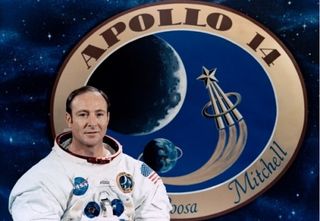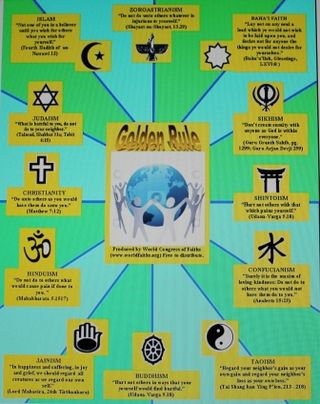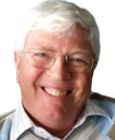Relationships
'All We Need is Love' - The World Congress of Faiths
Eighty years of bringing people together from different backgrounds and beliefs
Posted February 15, 2016

Edgar Mitchell - scientist, astronaut & visionary
Apollo 14 astronaut, Edgar Mitchell, who died this month, was the sixth person to walk on the moon.* Returning home, viewing the magnificence of the earth, sun, moon and the heavens, he experienced a major epiphany during which, as he put it, “You see things with your senses the way they are, but you experience them viscerally and interiorly as a unity and oneness, accompanied by ecstasy”. As he gazed at Earth floating in the vastness of space and contemplated the history and hopes of humankind on that lonely blue sphere, Mitchell was engulfed by a profound sense of universal connectedness. “All matter in the universe is created in star systems”, he realized. “We are stardust… And we are all one in that sense.”
This profound type of experience or intuition of unity – of a seamless and sacred connection between people, nature and each other – marks a vital turning point in a person’s spiritual development. What people share becomes more important than the differences that appear to separate us, especially differences of faith, culture, personal practice and beliefs.
This, too, is the central message of the UK-based World Congress of Faiths, first established in 1936 by Sir Francis Younghusband, who was once described as ‘the last great Imperial adventurer’. The organization has its roots in the Parliament of World Religions, first held in Chicago in 1893 and the Religions of Empire Conference, held in London in 1924. Its founder was influenced strongly by both encounters in Asian countries with the devoted practitioners of several Eastern religions, and epiphany-like mystical experiences of his own.

The WCF's Golden Rule Poster
Younghusband always stressed that the primary aim of WCF was to promote fellowship between faiths. There was no intention of formulating a new religion, nor of appraising the value of existing religions by examining respective merits and defects. Through discussion and reflection, and by coming closer to each other, members of different religions would deepen their own spiritual communion, strengthening a shared understanding and appreciation of God as ‘sacred unity’, and as a truly divine being or influence. Since its inception, WCF has been leading the way in building a community of individuals to create and enjoy the benefits of interfaith dialogue.
WCF’s primary task was to reduce the ignorance and prejudice with which people viewed other faiths. It still is. Because members of the World Congress of Faiths join on an individual basis, not as representatives of a religion, WCF has been able to pioneer and take risks. It has welcomed members of minority groups and seekers, as well as the major faiths.
Marcus Braybrooke, former Chair of WCF, explains: “As people meet, they begin to rid themselves of old prejudices, learn what others believe, and discover what they can do together”. The need seems as pressing today as it might have been eighty years ago. For example, the editorial of the latest edition of ‘Interreligious Insight’, the adventurous journal published regularly by WCF, reads, “The peace, justice and sustainability of the future requires that we deepen the dialogue across worlds of difference rather than downplay it.”

Sarum College, Salisbury, UK
The latest WCF symposium, held this month at Sarum College, a stone’s throw from the magnificent Salisbury Cathedral, was true to this form. Over thirty participants from a wide range of religious backgrounds, including a member of the British Humanist Association, spent the day greeting old friends and making new ones while engaged in earnest and good-natured enquiry. Briefly, the key issue seemed to concern the necessity of maturing beyond any partisan (Either/Or, Us/Them, Right/Wrong, therefore ‘dualist’) religious or spiritual viewpoint, beyond also the personal isolation of a completely individual perspective on such matters, towards a wiser, more inclusive (Both/And, unitary or ‘holistic’) disposition, resulting in a spontaneous and natural expression of tolerance, kindness and compassion, the willingness to observe, listen and learn from others, equally to share sacred knowledge with humility. (There is more about the symposium on the WCF website.)
Towards this kind of spiritual maturity is where – both individually and collectively – humanity is headed, according to Teilhard De Chardin, through personal and social evolution in the direction of what he called the Omega Point. The World Congress of Faiths and Sarum College are undoubtedly both playing their part. Faith, hope, patience and perseverance must be deployed; also the continued promotion of spiritual over material values in all corners of society. Words, shared discussion and dialogue, can be important, but so too are silence, stillness, contemplation and prayer. Being and doing; both are of value. The relentless march of clock time (chronos) is less significant in the search for wisdom than the fullness of God’s time (kairos). As the Book of Proverbs has it: “Lay aside immaturity, and live, and walk in the way of insight” (Ch 9: v 6). Alternatively, as the Beatles already told everybody: “All we need is love”.
Copyright Larry Culliford
Larry’s latest book is ‘Much Ado about Something’. Earlier books include ‘The Psychology of Spirituality’, and ‘Love, Healing & Happiness’.
Larry's website link.


